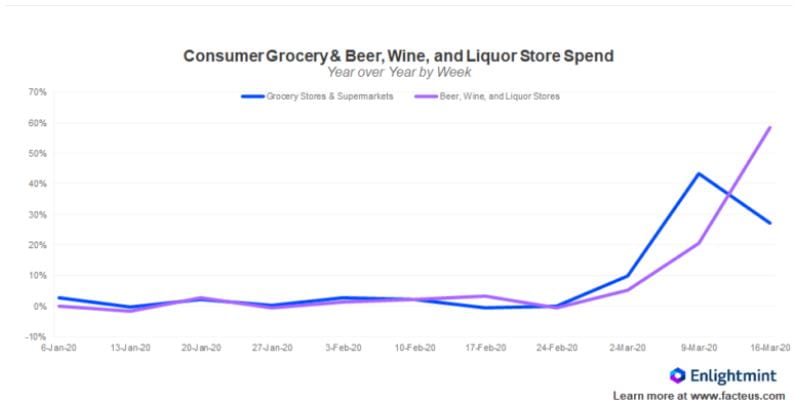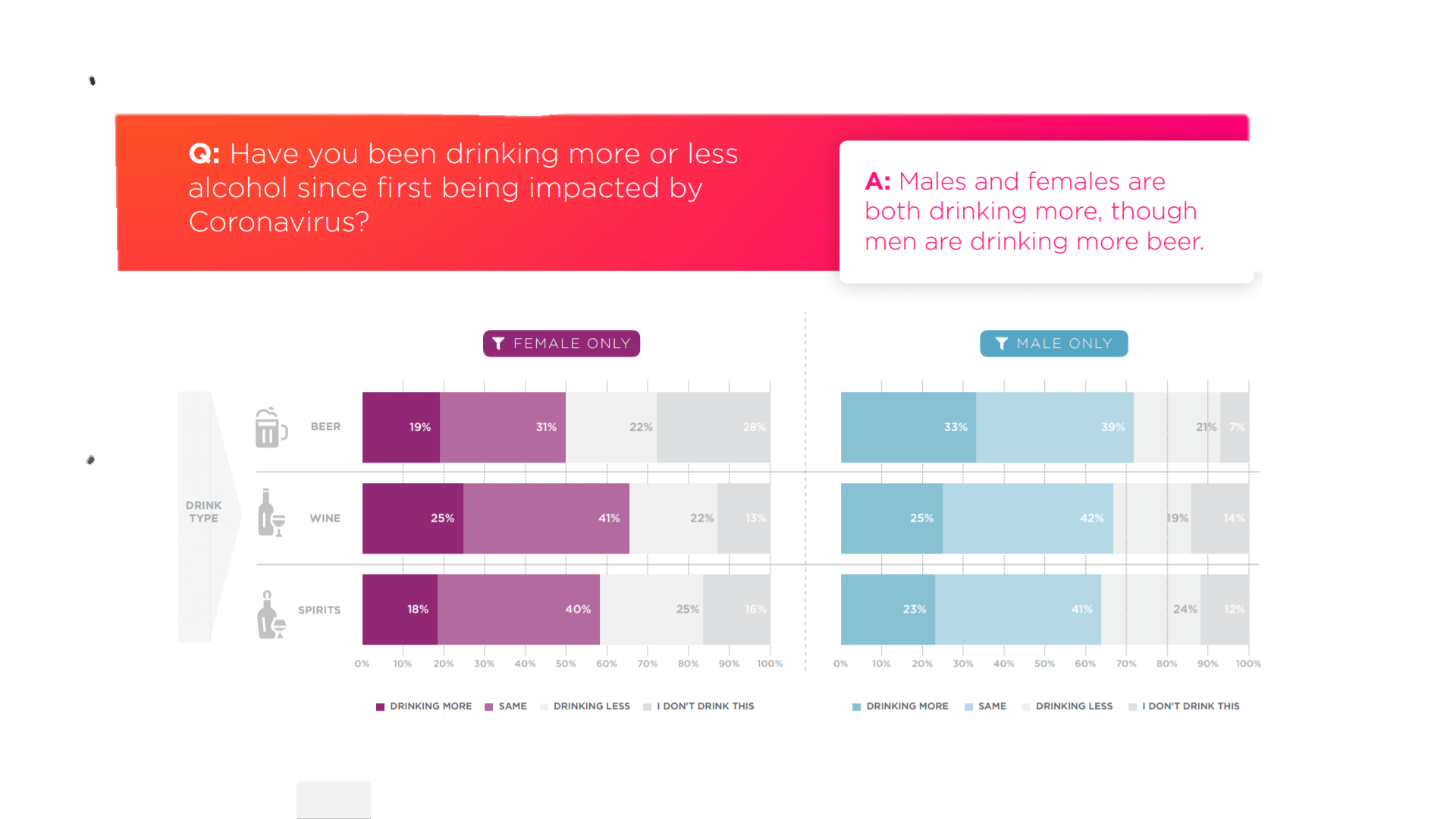The Coronavirus recession has caused serious repercussions for economies across the world. In the U.S., this crisis has increased the unemployment rate. Although the economic crisis can cause several public health problems, issues related to alcohol consumption and misuse are among the most likely to occur (9). Although currently, there is not known a clear association between financial crisis and alcohol consumption, there is a theoretical rationale commonly referred to as the tension-reduction hypothesis (9). This hypothesis shows that people tend to increase their alcohol consumption after stressful experiences because alcohol is used as a means of relieving adverse emotions resulting from exposure to anxiety (9).
Therefore, in these stressful times of financial crisis, it is essential to study the impact on mental health to prevent alcohol use disorders in society. For this reason, and in order to raise awareness, the World Health Organization has mentioned continuously on different platforms regarding the effects of the pandemic, especially in the areas of mental health and substance abuse, as they can have severe long-term impacts.(1).
To assess the effects of the Coronavirus crisis on individuals, the Kaiser Family Foundation (KFF) conducted a survey during the initial stage of the pandemic. In this survey, 72% of people said that the Coronavirus outbreak had altered their lives. It is interesting to see that women and parents are the groups that have seen the most interruptions in their lives, with percentages of around 74% and 73%, respectively (3).
Source: https://www.kff.org/coronavirus-covid-19/report/kff-health-tracking-poll-early-april-2020/
Furthermore, the study shows that 45% of adults mentioned that the crisis had altered their mental health, and 19% of them indicated that the crisis had a significant impact on their mental health. According to the study, Hispanic, African American, and female adults have the highest percentages (3).
Source: https://www.kff.org/coronavirus-covid-19/report/kff-health-tracking-poll-early-april-2020/
The KFF survey also reveals that 57% of women with young children are more likely to report negative impacts on their mental health than 32% of their male counterparts (2). Besides, the KFF study mentions that 54% of those who have lost income or a job reported negative mental health impacts from anxiety about the coronavirus, compared to 40% of those without financial problems (2).
It is important to note that the pandemic has highlighted and exacerbated the economic insecurity of women, as historically and currently, women have received much lower wages than men. In fact, the KFF study also shows that a much more significant proportion of women worry about unemployment and loss of income due to work interruption caused by the virus outbreak compared to men. This anxiety and worry in people may be deeply linked to other poll results showing that women are more economically affected than men, with 40% and 39%, respectively. These financial problems that women currently suffer can be essential factors for the exponentiation of mental issues and alcohol abuse, considering that women are more likely to experience anxiety and depression than men (8).
 Source : https://www.kff.org/coronavirus-covid-19/report/kff-health-tracking-poll-early-april-2020/
Source : https://www.kff.org/coronavirus-covid-19/report/kff-health-tracking-poll-early-april-2020/
Some reports have mentioned that alcohol sales have increased by nearly 30% more than normal levels during the pandemic (4). This increase in alcohol consumption goes hand in hand with the rise in the unemployment rate.
It is surprising to note that although people have less money to spend on alcohol due to lower wages or unemployment, they are likely to drink more to relieve the stress they feel.
Unfortunately, in times of crisis, the alcohol industry takes advantage of people vulnerable to financial and mental health problems by selling larger, cheaper drinks for people to consume large amounts of alcohol.
The IZEA Worldwide, Inc. report takes a closer look at the effects of quarantine on alcohol consumption for social media users. This report mentions and corroborates an increasing number of drinkers during the pandemic. It also shows that women have increased their wine consumption to a degree equal to the percentage of men (4).
Source: https://ml.globenewswire.com/Resource/Download/62e0b0b6-93bf-4eda-b801-e295409c50f1
These statistical findings show that the pandemic probably has long and short-term implications for alcohol consumption and mental health. If these trends continue, we may soon see a high prevalence of mental health and alcohol consumption problems, perpetuated by a post-pandemic economic recession.
The government must provide more access to treatments for mental health disorders and alcohol consumption to avoid long-term problems, especially in times of economic crisis. Currently, it is necessary to focus more on strategies and programs to prevent and adequately treat alcohol addiction, mainly in minority groups and women who are the most economically and psychologically affected groups in this pandemic. It is important to recognize that prevention of mental health disorders and alcohol consumption will lead to savings in the cost of treatments.
Therefore, the creation in a post-pandemic era of new approaches to treatment and prevention programs in the area of mental disorders and alcohol consumption is crucial, as this will eventually lead to increased employment, productivity, and social and personal well-being.
References:
2.- https://www.kff.org/coronavirus-covid-19/report/kff-health-tracking-poll-early-april-2020/
4.- https://ml.globenewswire.com/Resource/Download/62e0b0b6-93bf-4eda-b801-e295409c50f1
7.- https://onlinelibrary.wiley.com/doi/full/10.1002/j.2051-5545.2012.tb00114.x
8.- https://www.mayoclinic.org/diseases-conditions/depression/in-depth/depression/art-20047725
9.-https://edisciplinas.usp.br/pluginfile.php/1975319/mod_resource/content/1/realist%20systematic%20review_Sophie%20project.pdf






The statistics/graphs were amazing! It really puts into perspective how COVID-19 has changed alcohol habits for everyone. It’s interesting to see that parents of a child less that 18 had such a high percentage. I understand in the sense of being at home 24/7 with your child, but it is still surprising!